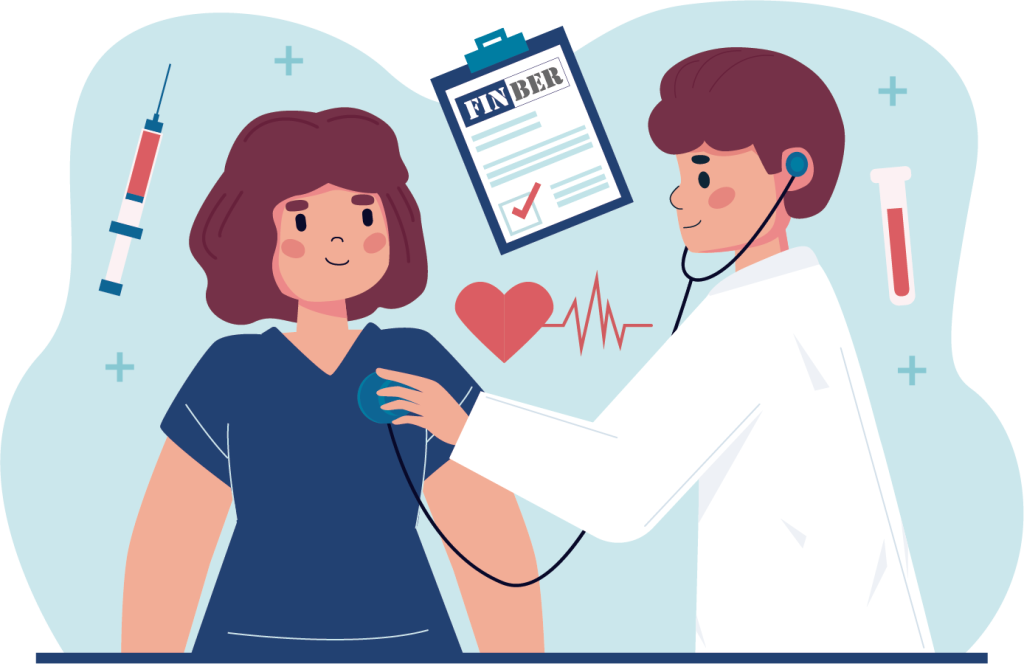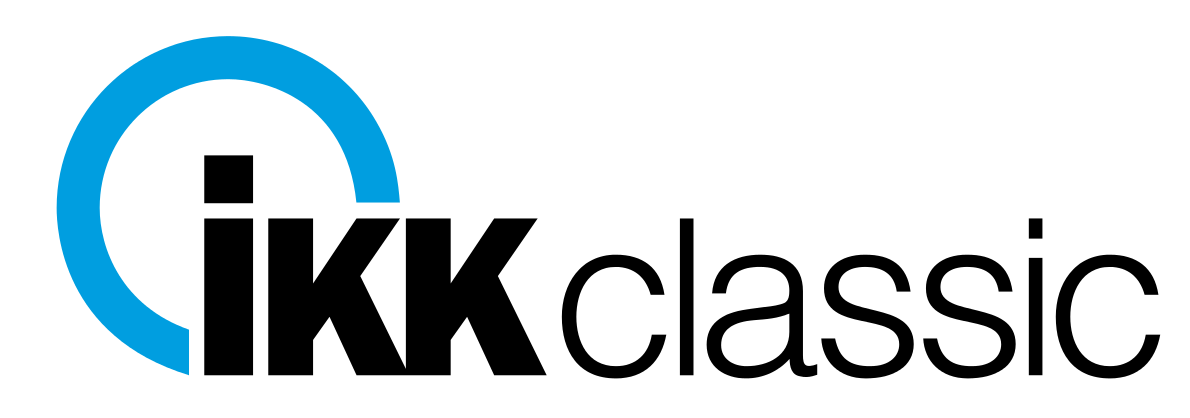
Germany is famous for its developed healthcare system, providing citizens and residents with access to high quality medical care. There is extensive public insurance under this system Statutory health insurance, covering both compulsory and voluntary healthcare. In this article we will look at four leading insurance companies in Germany - Mhplus, Techniker Krankenkasse, HEK and Ikk Classic.
What is the difference between private health insurance and public health insurance?
There are two types of healthcare in Germany: public and private insurance. The contribution to the Gesetzliche Krankenkasse (GKV, state insurance) depends solely on income – on average it's 16,2% from income and does not depend on age and concomitant diseases. In addition, the employer pays half of the contribution for employees.
While public health insurance covers most of the population, private health insurance provides an opportunity for employees whose incomes above 66.660 euros per year (2023) choose between public insurance companies and private insurance companies (private Krankenversicherung or PKV). Private insurance provides a wider range of services. Premiums depend on age, gender, health status at the date of conclusion of the contract and the services chosen. They are not related to income level.
State insurance
Private insurance
Amount of contributions
- On average 16,3% of income
Amount of contributions
- Fixed contributions depending on the tariff, age and illness
Family insurance
- A partner with a salary of up to 505 euros (self-employed) or 538 euros (employee) and children are included in the insurance free of charge
Family insurance
- Additional payment for each family member
Insurance cover
- Uniform tariff for all insured
Insurance cover
- Many tariffs, from the very minimum to the maximum, including experimental treatments
Payment for treatment
- Between the hospital/praxis and the insurance company directly
Payment for treatment
- The patient pays the bill themselves and is then reimbursed by the insurance company.
Holiday to care for the child
- Exemption from contributions, special rules for voluntarily insured persons
Holiday to care for the child
- Depends on the selected tariff
Who can be insured under public insurance?
The following groups of people are eligible to be insured by the public health insurance system in Germany:
- Employees whose employment remuneration exceeds 538 euros per month, but does not exceed the annual income threshold of 69.300 euros (for 2024)
- Recipients of unemployment benefit or maintenance benefit according to the Third Book of the Social Code (SGB III) and - under certain conditions - recipients of unemployment benefit II (ALG II)
- Students under 30 years of age
- Pensioners with a certain insurance period
- Recipients of a survivor's pension or a corresponding survivor's benefit assigned by a professional pension institution
- Entrepreneurs engaged in agriculture and forestry, members of their families working with them, as well as old-age pensioners in agriculture
- People with disabilities
- Artists and publicists
- Persons who have no other rights to health insurance coverage, who were last insured under statutory health insurance or are still insured with GKV
- Late migrants who moved to Germany for permanent residence (IMPORTANT! This opportunity is only available in the first six months after receiving documents in Germany)
In these cases, you have the opportunity to choose between voluntary state insurance and private insurance:
- Exceeding income above the limit for employees (69.300 euros for 2024).
- Self-employed people who are no longer subject to compulsory insurance from the moment they start working
Who cannot be covered by public health insurance?
- Students over 30 years of age cannot be insured under the GKV student rate. After this age they may need to switch to a private insurance company, for example CareConcept.
- Persons on certain types of visas: for example, this may be a short-term travel or tourism visa. Read more here.
- Entrepreneurs and self-employed people who were not previously covered by public insurance in the European Union. Available for this category of persons private health insurance.
2. Be covered by family insurance.
Family insurance
Children, spouses or registered same-sex partners are exempt from paying national health insurance contributions if they live together in Germany and have an income that does not regularly exceed a certain level. After the end of family insurance, it is usually possible to continue the contract in the public health insurance system, even if one of the partners has become self-employed.
What is the income limit for people included in family insurance?
The income limit is 505 euros per month for the self-employed and 538 euros (as of 2024) for employees. When determining total income, alimony payments are not taken into account.
Features of family insurance
For versicherungspflichtigen insured persons, it makes no sense to switch to family insurance during maternity and parental leave, since they are exempt from paying contributions from parental benefit.
For a voluntarily insured person (freiwillige), who, before maternity leave or before receiving child care benefits, was voluntarily insured in the state health insurance system because his regular earnings exceeded the compulsory insurance limit, the following rules apply: after receiving the child care benefits During pregnancy and childbirth, he has the right to free insurance during maternity leave or receiving child care benefits. This is only possible if his spouse or partner is a member of compulsory health insurance. Otherwise, (minimum) contributions must be paid.
Self-employed people receiving childcare benefits must continue to pay (minimum) contributions.
The inclusion of a child in the family tariff is excluded if the spouse or partner:
- is insured by private health insurance and his income exceeds 69.300 euros (2024) per year
- and income is regularly higher than that of a spouse or partner insured under the compulsory insurance system.
Children are exempt from paying insurance premiums - for how long?
Typically this release ends:
- upon reaching the age of 18.
- For non-working children - upon reaching the age of 23.
- If the child is in school, undergoing vocational training or performing voluntary service (voluntary annual service in the Bundeswehr - BFD; voluntary social year - FSJ; voluntary environmental year - FÖJ), then the insurance at the family rate ends at the age of 25.
- If school or vocational education is interrupted or delayed due to the child's voluntary service or voluntary military service, insurance may continue beyond the age of 25 for a maximum of twelve months.
Without age restrictions, children can be insured only if they are unable to support themselves due to physical, mental or mental health (disability). This requires that the disability already existed at the time family coverage was in place.
Students are required to be insured after the end of family insurance until they reach the age of 30. However, they pay a particularly low premium of 76,85 euros per month (in 2023) for health insurance, plus an additional contribution that the health insurance funds may charge their members.
Vocational students can become voluntary members of the state health insurance after the family insurance ends and pay the same amount as students.
Comparison of tariffs
- 15,90% (ZB = 1,30%)
- 15,80% (ZB=1,20%)
Professional teeth cleaning
- 10 € per year from 16 years old + 1 time free during pregnancy
Professional teeth cleaning
- 40 € per year from 18 years old
Osteopath
- 80%, no more than 3 sessions up to 30 €/session per year
Osteopath
- 3 sessions up to 40 €/session per year
Immunizations
- Flu for everyone, all recommended vaccinations with additional payment
Immunizations
- Flu for everyone, HPV up to 26 years of age, all travel vaccinations recommended by STIKO
Additional payments in connection with pregnancy and childbirth
- 100 € for taking over medicines
- 100 € for third-party midwife services
Additional payments in connection with pregnancy and childbirth
- 100% medication acceptance
- 80% partner preparation for childbirth, but not more than 100 €
- 250 € for third-party midwife services
Искусственное оплодотворение
- €200 subsidy for married couples per attempt, maximum 3 IVF or ICSI attempts
Искусственное оплодотворение
- €500 subsidy for married couples per attempt, maximum 3 attempts
Sports and health courses
- 80% and no more than 250 € per year
- No more than 2 courses per year
Sports and health courses
- 100% for online courses, 1 course = up to 100 €
- For offline courses 1 course = up to 75 € and no more than 2 courses per year
Homeopathy and alternative medicines
- Homeopathic contract with KV-Karte for free.
- Up to 300 € for alternative medicines
Homeopathy and alternative medicines
- Free with contract homeopathy suppliers via KV-Karte.
- Up to 100 € for alternative medicines
Skin cancer screening
- 100% from 18 years old every 2 years
Skin cancer screening
- 100% from 15 years old every 2 years
- 15,90% (ZB = 1,30%)
- 15,80% (ZB=1,20%)
- 16,18% (ZB = 1,58%)
- 16,30% (ZB = 1,70%)
Professional teeth cleaning
- 10 € per year from 16 years old + 1 time free during pregnancy
Professional teeth cleaning
- 40 € per year from 18 years old
Professional teeth cleaning
- 40 € per year + 1 free visit from a doctor cooperating with the insurance company
Professional teeth cleaning
- 40 € per year
Osteopath
- 80%, no more than 3 sessions up to 30 €/session per year
Osteopath
- 3 sessions up to 40 €/session per year
Osteopath
- 80%, 2 sessions up to 60 €/session per year
Osteopath
- 4 sessions up to 40 €/session per year
Immunizations
- Flu for everyone, all recommended vaccinations with additional payment
Immunizations
- Flu for everyone, HPV up to 26 years of age, all travel vaccinations recommended by STIKO
Immunizations
- Flu for everyone, HPV up to 26 years of age, all travel vaccinations recommended by STIKO
Immunizations
- Recommended vaccinations with additional payment
Additional payments in connection with pregnancy and childbirth
- 100 € for taking over medicines
- 100 € for third-party midwife services
Additional payments in connection with pregnancy and childbirth
- 100% medication acceptance
- 80% partner preparation for childbirth, but not more than 100 €
- 250 € for third-party midwife services
Additional payments in connection with pregnancy and childbirth
- +400 € to the basic budget for pregnancy (150 €)
- 250 € for third-party midwife services
Additional payments in connection with pregnancy and childbirth
- 100 € for taking over medicines
- 100 € for additional expenses
- 250 € for third-party midwife services
Искусственное оплодотворение
- €200 subsidy for married couples per attempt, maximum 3 IVF or ICSI attempts
Искусственное оплодотворение
- €500 subsidy for married couples per attempt, maximum 3 attempts
Искусственное оплодотворение
- 100% coverage for married couples if both are insured with mhplus, increasing the permissible female age to 42 years
Искусственное оплодотворение
- 500 € if both partners are insured by IKK
- €250 subsidy for married couples per attempt, maximum 3 attempts.
Sports and health courses
- 80% and no more than 250 € per year
- No more than 2 courses per year
Sports and health courses
- 100% for online courses, 1 course = up to 100 €
- For offline courses 1 course = up to 75 € and no more than 2 courses per year
Sports and health courses
- 80% 1 course = up to 70 € and no more than 2 courses per year
Sports and health courses
- 1 course = up to 90 € and no more than 2 courses per year
Homeopathy and alternative medicines
- Homeopathic contract with KV-Karte for free.
- Up to 300 € for alternative medicines
Homeopathy and alternative medicines
- Free with contract homeopathy suppliers via KV-Karte.
- Up to 100 € for alternative medicines
Homeopathy and alternative medicines
- Free with contract homeopathy suppliers via KV-Karte.
- Up to 50 € for alternative medicines
Homeopathy and alternative medicines
- No offers for homeopathy
- Up to 50 € for alternative medicines
Skin cancer screening
- 100% from 18 years old every 2 years
Skin cancer screening
- 100% from 15 years old every 2 years
Skin cancer screening
- 100% from 15 years at least every 2 years (in some states every year)
Skin cancer screening
- Up to 30 € every 2 years up to 35 years
Separate rules for self-employed artists, publicists and artists.
In accordance with Artists' Social Security Act (KSVG), self-employed artists and journalists are subject to compulsory health, pension and social insurance, just like employees.
Social insurance for artists (KSV)
Like employees, self-employed artists and journalists pay half of the contributions to Artists' Social Fund (Künstlersozialkasse or KSK); the other half is collected through KSK through federal subsidies and contributions. As with employees, contributions depend on income from work.
The minimum insurance income is 3900 euros per year; There are exceptions for unstable income and for those just starting their careers.
Image by Freepik








